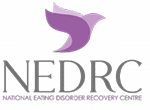National Eating Disorders Recovery Centre
First in Eating Disorders
What is a relapse? What if I relapse?
Recovery is never a straight line forward, but instead involves many ups and downs, lapses and even relapses.
It is important to remember that a lapse is not a relapse. A lapse is a temporary return to an eating disorder behaviour, while a relapse is a full-on return to the eating disorder behaviours & thoughts. Neither signifies a failure to recover.
Lapses are a part of the recovery journey. They are a set back and can provide a very useful opportunity to join together the strategies that work for you, help you to identify your triggers, and can provide an opportunity to learn new coping techniques.
A relapse is also a natural part of the journey back to health and can also act as useful learning opportunity. This can help you to recover more quickly or easily next time.
*REMEMBER* you are never back to where you one started from.
If a relapse does occur:
- Focus on navigating your way back to health
- Seek help from the NEDRC and support network (GP, family, friends)
- Use the coping skills and techniques you have learned at NEDRC
- Try to identify the triggers that led to the relapse and consider how you could manage these triggers next time
- Boost your self-esteem by spending time with your support network and engaging in activities that you enjoy
Relapses may be prevented by:
- Making sure you have a solid support network
- Sticking with your treatment plan, and talk to your NEDRC team about any challenges you are having
- Participating in activities that make you feel positive about yourself
- Avoiding media and social media channels that promote being thin, or changing your body shape, or make you feel bad about yourself
- Talking to your friends and family about your concerns and what they can do to support you
“They may forget your name, but they will never forget how you made them feel”
Families are an important part of the recovery process and we encourage their participation but only with your consent. We also understand that not everyone has a relationship with their family and would not force this connection.
About Us
The National Eating Disorders Recovery Centre (NEDRC) supports a realistic view to health and weight. We incorporate WHO, NICE, MARSIPAN and the HSE Model of Care for Eating Disorders guidelines along with elements of Health at Every Size (HAES) principles, Intuitive Eating and Therapeutic Movement. We approach each individual with a holistic view, using the Medical, Therapeutic, Psychosocial and Recovery models.

Start your recovery journey today
Give us a call to schedule an appointment.
Phone: 01 564 4450 / 087 7755996




